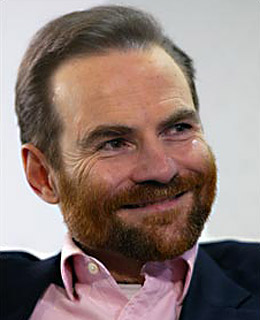
Earlier this year, it seemed as if Timothy Garton Ash — who describes himself as a "historian of the present" — had become a historian of the future too. His book Free World, published in 2004, had sounded a clarion call for transatlantic unity. The U.S. and the European Union, he argued, should put aside their differences over Iraq and focus instead on their numerous common interests. The verdict of many reviewers: Fat chance. Yet almost the first thing Condoleezza Rice did as U.S. Secretary of State was fly to Europe, followed by President George W. Bush. Their fence-mending mission looked like a vindication of Garton Ash's latest thesis: The Atlantic may be wide, but it isn't getting wider.
Shelves are where most works of history spend their lives. But the kind of history Garton Ash writes is more likely to lie on the desks of the world's decision makers. When, shortly after his Inauguration, Bush requested a briefing on European affairs, Garton Ash, 49, topped the list. Having chronicled the fall of communism in Eastern Europe, Garton Ash spent the '90s arguing that the further integration of Western Europe should not preclude bringing in the liberated Soviet-bloc states. Writing about the U.S., Garton Ash sometimes quotes simple American folk making the case, for example, against imperial overstretch. It's not clear whether the second Bush Administration will be less imperially minded. But if transatlantic relations really do take a lasting turn for the better, Timothy Garton Ash will deserve part of the credit.
Ferguson is the Laurence A. Tisch Professor of History at Harvard
From the Archive
The Past Through a Filter: Two memoirs show how personal recollections cannot reveal the full and true story of a life